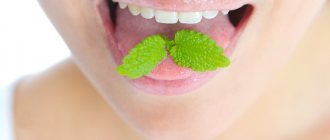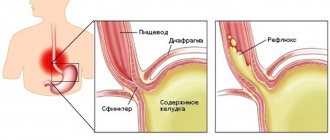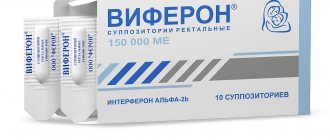What diseases cause purulent sputum?
Purulent sputum when coughing can appear for various reasons. Mostly this is caused by serious problems in the body, so you should not treat the symptom yourself. Why does a purulent cough appear:
- pneumonia;
- disturbances in lung function;
- bronchitis;
- tuberculosis;
- asthma;
- tumor.
A healthy person may expectorate a small amount of mucus per day. Normally it is transparent and odorless. Depending on its color, sputum indicates the presence of certain diseases. For an accurate diagnosis, you need to see a doctor and undergo the necessary tests. What does yellow-green sputum indicate:
- allergy;
- pneumonia;
- untreated flu;
- asthma;
- bronchitis;
- pharyngitis;
- lung abscess.
Sputum that is rusty, red, or brown:
- pulmonary edema;
- tuberculosis;
- pneumonia;
- lungs' cancer.
A cough with white sputum indicates the presence of a fungal infection or tuberculosis. It is important to remember that self-medication is contraindicated when coughing with purulent sputum. You should immediately seek help from a doctor.
- Cough with sputum - how to treat in adults and children
GASTROESOPHAGEAL REFLUX: FROM NORMAL TO PATHOLOGY
If your child often suffers from acute respiratory diseases, perhaps it’s time for you, don’t be surprised, to see a gastroenterologist. Today we’ll talk about gastroesophageal reflux (GER) with Candidate of Medical Sciences, head of the pediatric department of the Consultative and Diagnostic Center of the Children’s Hospital No. 9 named after. G.N. Speransky Elena Vladislavovna Vigurzhinskaya, who will tell you why you can’t give your child kefir at night, which children with GERD need treatment from a neurologist.
Gastroesophageal reflux or GER is the backflow of contents from the stomach into the esophagus. Fun fact:
Symptoms of reflux in children under 7 years of age are associated with the structural features of the upper gastrointestinal tract and the immaturity of the sphincter apparatus of the digestive system.
Please note:
Reflux in children under one year of age is regurgitation syndrome.
Regurgitating up to a tablespoon after each feeding is normal. If the baby burps in a larger volume, sometimes not immediately after feeding, and at the same time begins to gain weight poorly, then in this case correction is already required - for this there are medicinal, anti-reflux mixtures (if the child is bottle-fed). Important:
During the first months of a breastfed baby’s life, the mother must follow a strict hypoallergenic diet with a limit on dairy, sweet products and foods that increase gas formation: legumes, yeast bread, pastry, grapes, mushrooms, etc. With increased gas formation, reflux in babies intensifies and frequent regurgitation occurs.
“In some children, over time, reflux becomes pathological and triggers a cascade of many other problems, including the child suffering from frequent viral infections and ENT diseases,” explains Elena Vladislavovna Vigurshinskaya
. “This happens because when gastric contents (gastric secretions or food bolus) are thrown into the esophagus and, possibly, into the oropharynx, the pH changes, the flora of the oral cavity is disrupted and local immunity decreases, and the child falls into the so-called group of “frequently ill children.” In older children, GER clinically manifests itself in the form of heartburn, belching (air and food), and parents may also experience bad breath.
Important:
Plaque on teeth, geographic tongue, bad breath, frequent ENT pathologies, cereals and obstructive bronchitis are a serious reason to seek advice from a gastroenterologist!
Interesting fact:
In impulsive and emotional children, GER may be more pronounced. In this case, the child will end up in the hands of not only a gastroenterologist, but also a neurologist.
Factors contributing to the development of GER
: anatomical feature of the structure of the upper gastrointestinal tract in young children, morpho-functional immaturity of the sphincter apparatus, hereditary predisposition, stressful situations, great physical and psychological stress, violation of the daily routine, unhealthy diet.
“If you undergo treatment, adjust your diet and establish a daily routine, you can get rid of GER,” says the head of the pediatric department. – You should not give your child acidic foods at night. Previously, children were advised to use kefir before bedtime, but this dairy product acidifies the stomach and acts aggressively. For reflux, we do not recommend acidic foods (especially before bedtime) - yogurt, kefir, as well as juices, sour berries and fruits. You can drink fermented baked milk or eat neutral yoghurt in the afternoon. But in general, I recommend limiting acidic foods, including fermented milk.
How is GER detected?
The specialist individually decides which study to prescribe. First of all, collecting anamnesis: the doctor asks the parents about the child’s complaints. Then, an ultrasound examination of the abdominal cavity is prescribed (strictly on an empty stomach, do not brush your teeth) with a water-siphon test. A fibrogastroduodenoscopy and chest x-ray with barium may be prescribed.
Treatment of GER:
Gastroenterologists prescribe prokinetics, antacids, proton pump inhibitors (medicines that reduce the production of hydrochloric acid by stomach cells)
. Important:
Gastroesophageal reflux may be a symptom of Helicobacter pylori infection. Therefore, first of all, it is necessary to identify and remove the bacteria. Another possible cause of reflux is a gastrointestinal form of food allergy. Keeping a food diary will help parents understand what “inedible” product the child’s stomach is trying to get rid of.
What happens if GER is not treated?
It is possible to develop a chronic condition that can lead to inflammation, erosions and even ulcers in the esophagus, replacing normal cells in the esophagus with pathological ones.
“I repeat that a diet and a healthy daily routine must be maintained for life,” says the gastroenterologist. – The child needs fractional meals. You should not overeat, eat dry food, it is best to wash down your food with water, weak tea, compote (pear, apple). It is also not recommended to go to bed on a full stomach. Chocolate and buns, alas, are prohibited.
Treatment methods
To begin treatment of cough and its root cause, the patient first needs to undergo the necessary tests. It can be:
- radiography;
- blood and urine tests;
- sputum analysis;
- bronchoscopy;
- spirography.
The doctor also conducts a visual examination and only then prescribes medications to improve expectoration of mucus. In addition to them they use:
- Physiotherapeutic procedures;
- Therapeutic gymnastics;
- Acupuncture;
- Immunomodulators;
- Massage;
- Surgical intervention.
Medicines used to treat this symptom are divided into the following categories:
- antibiotics;
- antiviral drugs;
- mucolytics;
- bronchodilators;
- anti-inflammatory drugs;
- homeopathic medicines;
- complex medicines.
The patient should drink frequently and a lot, give up smoking and alcohol, walk and breathe fresh air every day, and eat right.
Oral diseases
The appearance of an unpleasant rotten or rotten odor, both with and without a cough, may indicate oral diseases or insufficient hygiene. Irregular brushing of teeth leads to the appearance of plaque on them, as well as rotting food particles that remain in the small crevices of the oral cavity even several hours after eating. The unpleasant odor from the mouth becomes especially pronounced after sleep.
Other causes of odor include the following oral diseases:
- Stomatitis,
- Caries,
- Gingivitis,
- Tartar, formed from plaque due to insufficient oral hygiene,
- Gum abscess,
- Periodontal disease.
Pathologies of the oral cavity often become causes of disruption of the gastrointestinal tract. This is possible because, passing through diseased teeth, food carries some pathogenic microorganisms into the stomach.
- How to treat a dry cough in an adult that lasts for a long time without fever
ENT pathology
Almost all ENT diseases arise as a result of exposure to pathogenic microorganisms on the mucous membrane. These can be either viral or bacterial, most often coccal, infections. When they infect the human mucosa, they actively multiply in it. The result of the vital activity of pathogenic microflora is the appearance of purulent inflammation.
The main ENT diseases that provoke the appearance of cough with an unpleasant odor and pus are:
- Sinusitis. Pus accumulates in the maxillary sinuses and remains there constantly,
- Tonsillitis. It is characterized by inflammation of the tonsils and the appearance on their surface of accumulations of pus, consisting of dead bacteria, dead epithelial cells and leukocytes.
The appearance of small, foul-smelling lumps when coughing most often indicates tonsillitis. With sinusitis, pus is most often excreted in sputum.
Diabetes
The appearance of a cough with a specific odor from the oral cavity is also possible with diabetes. In this case, the cough itself occurs due to constant dry mouth that accompanies the pathology, and the foul odor is a reaction to dehydration.
In diabetes mellitus, cough may be accompanied by the aroma and taste of acetone. This phenomenon occurs when the mucous membranes are dry due to fasting or lack of fluids, especially with excessive sweating.
Diseases of the gastrointestinal tract
A foul odor, as well as a cough, can occur in a person due to slow digestion, low acidity of gastric juice, and also due to rotavirus infection. The smell of rotten eggs occurs when coughing and belching due to fermentation and rotting of undigested food. Coughing in such cases is often accompanied by the flying out of small lumps of rotting food. The pathology may also be accompanied by vomiting.
Sour belching and a cough with a sour smell may indicate gastritis or a peptic ulcer of the stomach or duodenum.
Vasilenko V.V. Bad breath, or halitosis / www.gastroscan.ru. 2022
| Authors: Vasilenko V.V. |
Bad breath, or halitosis
| The myth is that bad breath and bad breath are usually associated with a stomach condition. Bad breath in the morning is due to the fact that salivation decreases sharply at night. |
Regardless of what exactly is the cause, saliva, or rather a lack of it, is largely to blame for bad breath.
In the human mouth there are a lot of bacteria that feed on protein contained in food debris and dying tissue. These bacteria produce foul-smelling gases, the most unpleasant of which are hydrogen sulfide (which smells like rotten eggs) and methyl mercaptan (which smells like manure). Bacteria in the mouth thrive in the absence of air. Saliva, rich in oxygen, actively prevents their reproduction. An unpleasant odor, a common cause of discomfort in communication, occurs when the flow of saliva slows down. This happens, for example, in a dream. So there is hardly a daredevil who claims that he is unfamiliar with morning breath. Excitement, hunger, pronouncing a long monologue, breathing through the mouth - all this dries out the oral cavity and leads to a stench. This not very pleasant feature has been noticed (although not yet explained) under stress.
Amor tussisque non celantur. “You can’t hide love and a cough.”
A decrease in saliva flow inevitably occurs with age. This is why babies have clean breath because they produce a large amount of saliva and have relatively few bacteria in their mouths. Older people tend to have bad breath more often than younger people.
Until recently, it was believed that if the smell has no obvious cause, then it is the result of periodontitis, inflammation of the tissue surrounding the roots of the teeth. Plaque deposited on the teeth can lead to fusion of the gum with the tooth and, as a result, to the cessation of oxygen access. This provides ideal conditions for anaerobic (i.e., does not require oxygen) bacteria, which contribute to the development of gum disease and cause the odor associated with such conditions. However, studies have shown that most people who suffer from bad breath do not have gum disease.
Bacteria that produce sulfur (after all, it is what smells so “wonderful”) actively multiply on the upper part of the tongue, settling between the microscopic papillae under a layer of plaque and mucus. With regular tooth brushing, these colonies cannot be completely eliminated. The papillae of the tongue are like a fleecy carpet, and you need to clean between them, getting to the very bottom. A clean tongue is a pink tongue! A white coating on it means that millions of bacteria continue to colonize their favorite territory.
The variety of diseases is truly endless. Pliny the Elder
If bad breath appears only in the morning, then getting rid of it is as easy as shelling pears - just have breakfast. When you eat or drink, saliva begins to be produced, which washes away most of the bacteria.
The bad odor caused by dryness can be completely eliminated by simply brushing your teeth, during which many bad-smelling bacteria are destroyed. It’s a good idea to clean your tongue, palate and cheeks at the same time. It is very important not to ignore the toothpick to remove food particles and bacteria stuck between the teeth. For those who suffer from chronic dry mouth, it is helpful to always have chewing gum, lozenges, and a bottle of water or juice on hand. Lemon water makes the salivary glands work harder.
To digest knowledge, you need to absorb it with appetite. Anatole France
Rinses that claim to kill harmful bacteria, unfortunately, somewhat exaggerate their importance, since most of the “objects” are reliably protected by a thick layer of plaque and mucus. If the rinse contains alcohol (which is most of the time), your mouth will become dry and your breath will smell worse. As an alternative, pharmacies offer a number of effective chlorhexidine-based products for self-treatment of the oral cavity.
And yet, the most inexpensive but effective remedy for combating bad odor that originates in the mouth is a hypertonic salt solution (1 tablespoon of salt per glass of water). Precipitation even after stirring means that the solution is saturated, i.e. hypertensive. The solution must be freshly prepared for each use. It works as follows:
- washes and irrigates the mucous membrane, dissolves mucus;
- reduces swelling and inflammation of the mucous membrane;
- dehydrates bacteria, which stop multiplying and then die;
- penetrates into the lacunae of the tonsils and realizes the same effects there.
Everyone knows that garlic causes a strong odor from the mouth.
But few people realize that for this smell to appear, it is not at all necessary to eat garlic - it “works” without even getting into the stomach: for example, when rubbing the heel with garlic, the garlic penetrates the pores, enters the lungs and causes... bad breath. Thus, the garlic “fragrance” does not come from the stomach. The sulfur compounds contained in garlic enter the blood, from where they enter the lungs and, with exhaled air, onto the interlocutor. In the same way, alcohol and onions penetrate into the exhaled air through the blood. By smelling, grated garlic expels harmful worms; it also expels worms and worms, if you take the medicine, from the womb. Odo from Mena “On the properties of herbs”, XI century.
It is impossible to completely and quickly eliminate the smell caused by food. So you shouldn’t even try to overpower it with mint or parsley. They won’t be able to help, but they will worsen your breathing, because a mixture of different smells only turns into incense in the hands of professionals.
Only time and a maximum of liquid (water or tea), which should be drunk during a “meal with consequences,” can save the situation.
Special rinses, mints, and mouth deodorants, which are usually used before important events, are actually practically useless. Their effect is to mask rather than prevent or remove odor. The pleasant aroma of these products interrupts the unpleasant amber for no more than an hour. This type of halitosis is called physiological. However, there are also diseases that provoke pathological halitosis.
Dry mouth is often a symptom of illness. Therefore, as in other similar cases, you need to start by identifying and eliminating the cause, not the effect. For example, with a hiatal hernia, the stomach protrudes through the diaphragm into the chest cavity, and acidic juices can regurgitate into the esophagus, causing distorted odors of the food to become apparent when exhaling.
Doctor: “Are you eating well, sir?” Monsieur de Poursonyac: “Yes, and I drink even better.” Doctor: “That’s what’s bad. Such a strong desire for cold and damp indicates internal heat and dryness.” Moliere
Respiratory tract infections ruin your breath in many ways. Firstly, when a person begins to breathe through the mouth with a stuffy nose, a kind of incubator is formed in the mouth for the proliferation of bacteria. Secondly, some respiratory diseases are caused by bacteria, which themselves produce sulfur gases. In these cases, it is advisable to consult a doctor about the possible prescription of antibiotics.
In addition, antiallergy medications, decongestants, antidepressants, anti-anxiety medications, and some hypertension medications reduce saliva flow. The result is not long in coming.
Fans of a slim figure run the risk of developing bad breath. Two factors contribute to this: dry mouth and the release of acetone, which occurs during the breakdown of fat in the body. If extra pounds interfere with your life, then when going on a diet, you need to strengthen control over your oral hygiene and drink as much fluid as possible.
You can especially sympathize with some women: their bad breath is a harbinger of menstruation. This may be due to hormonal changes leading to an increase in the number of bacteria in the mouth. In such cases, only careful oral hygiene can help.
V.V. Vasilenko. Sixty essays on digestion (recommendations from a gastroenterologist to patients) Back to section
Antibiotics for coughs with purulent sputum
If a doctor has prescribed antibiotics to a patient, the entire course must be taken. Do not change the dose or duration, even if there is an improvement in the condition. Take antibiotics in tablet form or intravenously. Only in fairly complex cases, the doctor may prescribe several types of antibiotics. What medications are prescribed:
- What you can do for a cough while breastfeeding: syrups, lozenges, tablets
- Trifamox;
- Amoxiclav;
- Clindamycin.
Each drug acts on different bacteria. Therefore, before prescribing a course, you need to conduct an analysis of the bacterial flora. When coughing with purulent sputum, you need drugs with a strong effect. You should not take antibiotics very often. Bacteria become accustomed to them, which reduces their effectiveness. Also, these medications have a number of side effects and contraindications. It is advisable to take them with probiotics - drugs that normalize the functioning of the intestinal microflora.










